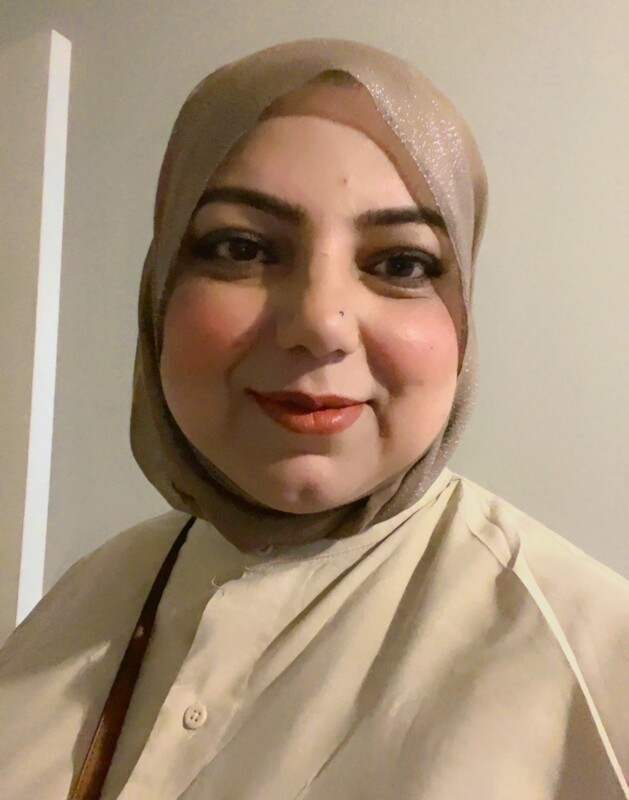My CBU Story: Rahat Razzaq
 A teacher’s impact on students is often measured on paper, in schedules and structures; from due dates and test scores to report cards and attendance records, it’s easy to reduce students’ progress to numbers. Though the lasting effect teachers have on students is usually harder to quantify.
A teacher’s impact on students is often measured on paper, in schedules and structures; from due dates and test scores to report cards and attendance records, it’s easy to reduce students’ progress to numbers. Though the lasting effect teachers have on students is usually harder to quantify.
For Rahat Razzaq, it is measured by quiet victories, rarely seen in statistical data, made possible only by earning a student’s trust. Rahat had always felt that those kinds of moments are what made differences in a student’s trajectory. Those feelings were confirmed during her practicum teaching mathematics at Dartmouth High School. A student stayed behind after class to attempt to finish a math problem on his own, one more time, and there was an instant confidence boost when he got it correct.
That is the moment Rahat returns to when she thinks about her year in Cape Breton University’s Bachelor of Education program. Born and raised in Pakistan, with prior teaching experience from her time in Kuwait and the United Arab Emirates, Rahat arrived in Cape Breton looking for more than just a credential – she was seeking out a way to teach that honoured cultures, relationships, community and the individual lives of students.
“One of my most meaningful moments was seeing a student who initially struggled with confidence in math begin to enjoy solving problems independently,” Rahat says. “That moment reaffirmed my belief that teaching is about empowering students to see their own potential.”
Learning the L’nu Way
Rahat Razzaq came to CBU looking for an education program that offered more than just academics; she wanted to learn in a space that centered education around community. CBU felt like a good fit for Rahat because the program treats learning as a shared experience. She elected to study in the L’nu Concentration (focusing on Mi’kmaw knowledge and other Indigenous teaching methods and practices), to Rahat it provided a pathway to meaningful, community-centred education.
The L’nu concentration challenged Rahat to centre relationships in her teaching philosophy, to listen first and to plan with reciprocity in mind. “The L’nu Concentration, in particular, stood out for its commitment to Indigenous pedagogies, respect for multiple ways of knowing and its focus on relationship-based learning,” Rahat says. “As an internationally trained teacher, I wanted to deepen my understanding of teaching in a Canadian context while learning from Indigenous perspectives that honour land, language and culture. The program’s holistic and inclusive approach aligned perfectly with my personal values and teaching philosophy.”
Her practicum at Dartmouth High School brought those Indigenous concepts into her teaching reality. Teaching mathematics in a high school setting, Rahat learned to combine clarity with care. When student confidence waned, she changed her pace, adjusted groups and found ways for them to show understanding beyond a single testing method. The work was technical, but Rahat says the turning points were relational.
“The L’nu Concentration reshaped my understanding of education as a relational process. I learned that teaching is not only about curriculum, but also about connection, respect and reciprocity,” Rahat says. “I now approach my classroom as a shared learning space, where students’ identities and stories are valued. I’ve become more intentional about integrating land-based learning, culturally responsive teaching and restorative practices that honour each learner’s voice.”
Support and Space to Grow
That transition, however, was not automatic. Bringing years of international experience into a Canadian context meant unlearning as much as learning. Expectations were different. Systems were new. There was a lot to figure out. With feedback from teachers and academic advisors, Rahat learned to blend what she knew with what this new community needed. Flexibility, humility and patience became part of her teaching toolkit.
“At times I questioned whether my past teaching methods would translate effectively,” Rahat says. “I learned to blend my global experience with local context, embracing flexibility, cultural humility and continuous learning. That process helped me grow both professionally and personally.”
Faculty mentorship also helped Rahat connect the dots between teaching theory and practice. Rahat credits many instructors and mentors from her time at CBU for pushing her to reflect and plan with equity in mind, not least of which, Rahat Says, was CBU sessional instructor Marjorie Graves.
“One instructor who made a lasting impact on me was Marjorie Graves. Her teaching and the resource ‘Systemic Barriers for L’nu Students’ profoundly deepened my understanding of the educational inequities faced by L’nu learners,” Rahat says that guidance helps her now “create inclusive, empowering learning environments.”
Next Steps
Looking ahead, Rahat hopes to keep teaching in Nova Scotia’s public school system. Bridging the knowledge she brings from her international teaching experience with what she has learned here at CBU. To keep building classrooms where students see themselves in the work and where bridges are built across cultures. It is the kind of teaching she came to CBU to learn and the kind she practiced every time a student stayed after class to try one more problem.
“My CBU experience was a journey of transformation,” Rahat says. “One that connected my global teaching roots with the heart of community, culture and care in education.”
Congratulations to Rahat and the entire graduating class of Fall 2025